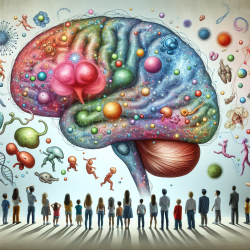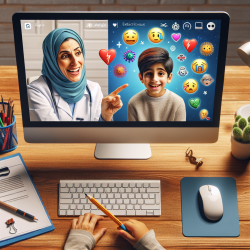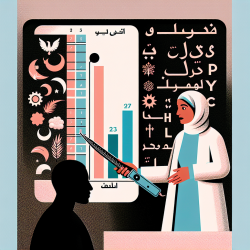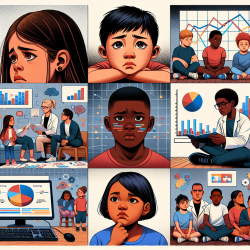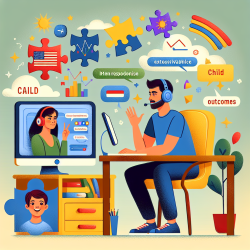Introduction
The intricate relationship between the human brain and the microbiome is a burgeoning field of research that holds significant promise for enhancing therapeutic practices, particularly in speech-language pathology. The research article "Friends with social benefits: host-microbe interactions as a driver of brain evolution and development?" provides a compelling exploration of how microbial interactions may have influenced the evolution and development of the mammalian brain. This blog aims to translate these findings into actionable insights for practitioners, encouraging further research and application in clinical settings.
Understanding the Microbiome-Brain Connection
The human microbiome, a complex community of trillions of microorganisms residing in the body, plays a crucial role in various physiological processes, including brain development. Recent studies suggest that these microbes are not merely passive inhabitants but active participants in shaping brain function and behavior. The research highlights how host-microbe associations have potentially influenced mammalian brain evolution, integrating aspects of human brain development with symbiosis and RNA biology.
Implications for Practitioners
For speech-language pathologists, understanding the microbiome-brain connection can open new avenues for intervention, particularly in children with neurodevelopmental disorders. Here are some practical steps practitioners can consider:
- Integrate Microbiome Awareness: Educate parents and caregivers about the potential impact of the microbiome on brain development. Encourage healthy dietary habits that support a balanced microbiome, which may, in turn, support cognitive and language development.
- Collaborate with Healthcare Providers: Work closely with pediatricians and nutritionists to develop comprehensive care plans that consider the child’s microbiome health as part of their overall developmental strategy.
- Encourage Further Research: Stay informed about the latest research in microbiome science and its implications for neurodevelopment. Encourage participation in studies that explore the microbiome’s role in language and cognitive development.
Encouraging Further Research
The hypothesis presented in the research article suggests that epigenetic mechanisms mediate genome-microbiome interactions, affecting brain adaptation and plasticity. This perspective encourages a deeper exploration of how these interactions can be harnessed to improve therapeutic outcomes. Practitioners are encouraged to consider the following:
- Participate in Multidisciplinary Research: Collaborate with researchers in microbiology, neuroscience, and genetics to explore the interplay between the microbiome and brain development further.
- Develop Evidence-Based Practices: Use data-driven approaches to incorporate microbiome considerations into therapy plans, ensuring interventions are grounded in the latest scientific evidence.
Conclusion
The evolving understanding of the microbiome’s role in brain development presents exciting opportunities for speech-language pathologists. By integrating these insights into practice, practitioners can enhance therapeutic outcomes and contribute to a growing body of research that could redefine approaches to neurodevelopmental disorders. To read the original research paper, please follow this link: Friends with social benefits: host-microbe interactions as a driver of brain evolution and development?
